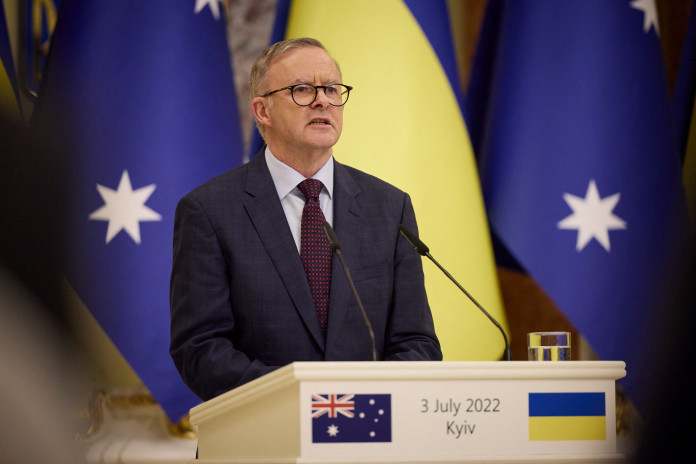In a digital age where social media platforms have become ubiquitous, the question of whether children under the age of 16 should be allowed access to these platforms has sparked considerable debate. Anthony Albanese, the Australian Prime Minister, recently endorsed the idea of raising the minimum age for social media registration to 16, citing concerns over the detrimental effects of excessive online engagement on children’s mental health.
Albanese’s endorsement of this proposal reflects growing apprehension regarding the impact of social media on young minds. He argues that prolonged exposure to the often toxic environment of social media can have serious consequences for children’s well-being, exacerbating social pressures and leading to mental health issues. Indeed, the anonymous nature of online interactions can foster an environment where harmful comments and cyberbullying thrive, posing significant risks to the emotional and psychological development of young users.
The push for age restrictions on social media is not confined to political circles alone. Various advocacy groups and individuals have joined the chorus, highlighting the need to shield children from the potentially harmful influences of online platforms. Nova FM’s “36 months” campaign, which advocates for delaying social media registration until the age of 16, underscores the growing momentum behind this movement.
Critics of social media age restrictions argue that such measures may be difficult to enforce effectively. While platforms typically require users to provide their birthdates upon registration, this requirement can be easily bypassed, raising questions about the practicality of age verification mechanisms. Additionally, social media companies have voiced concerns about the feasibility and impact of implementing stricter age limits, citing the need to balance privacy, freedom of expression, and user safety.
The Australian government’s proposed trial of an age assurance system for websites, aimed at verifying users’ ages and restricting access to adult content, represents a step towards addressing these concerns. However, questions remain regarding the trial’s scope, effectiveness, and potential penalties for non-compliance. Moreover, the precedent set by other countries, such as the UK, where age assurance legislation is in its early stages, offers valuable insights into the challenges and complexities of regulating online content.
As policymakers grapple with the issue of social media regulation, it is essential to consider the broader implications for society. Beyond safeguarding children’s well-being, efforts to curb harmful online behavior must also uphold principles of free speech, privacy, and digital rights. Moreover, addressing the root causes of online toxicity requires a multifaceted approach that involves education, parental guidance, and collaboration between governments, tech companies, and civil society.
Ultimately, the debate over whether children under 16 should be banned from social media reflects broader concerns about the role of technology in shaping our lives. While age restrictions may offer a partial solution to mitigate the risks associated with online platforms, they alone cannot address the complex array of challenges posed by the digital age. As we navigate this evolving landscape, it is imperative to strike a balance between harnessing the benefits of technology and safeguarding the well-being of future generations.


